Leading change
Africa Speaks interrogates decolonising higher education
“I am an African, an African scholar and an African activist of mixed heritage.” These were the words of Dr Shose Kessi, a senior lecturer at the University of Cape Town, as she began her address at the Unisa Africa Speaks lecture hosted by the College of Human Sciences.
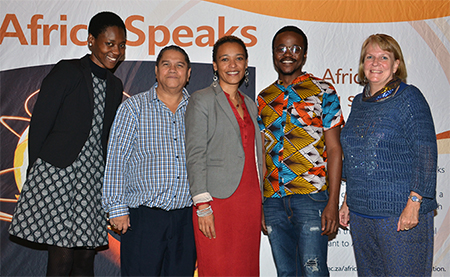
Prof Puleng Segalo (Head: Research and Graduate Studies, CHS), Prof Andrew Phillips (Executive Dean, CHS), Dr Shose Kessi (University of Cape Town), Sibusiso Maseko (Department of Psychology, CHS), and Dr Britta Zawada (Deputy Executive Dean, CHS)
Her experiences of living in different parts of the world where she witnessed privilege and oppression has shaped her identity as an African. She elaborated that the term “I am an African”, mentioned in the speeches of former president and current Unisa Chancellor, Thabo Mbeki in 1996, and Pixley ka Isaka Seme in 1906, speaks to the centrality of identity in the project of national consciousness. Our political identity as individuals and as members of different groups of societies are therefore very much shaped by how we relate to the nation.
She highlighted that the legitimacy of Africans to live and belong in their own nations and the world depends not only on formal laws and policies but also on the representations and meanings attributed to African identities.
“The racialisation of our society is closely tied with conceptions of gender relations and sexualities. Fixed identities of women and men are reinforced through socially constructed worlds, where women in the family are located in the private domain and men are located in the public domain.”
She further stated that these fixed identities have implications for citizenship status because while men have been able to participate fully in formal political life, acting as representatives of the family unit, women often needed, and, in many places, still do, permission from male relatives for access to certain rights. These fixed identities make inequality to be a societal norm.
Black academics are alienated
She continued to say the current decolonial moment in South African universities is an example of institutions heading to a shift in institutional culture. The assumptions, beliefs, and ideologies that characterised historically white universities and their tradition of thought are coming into conflict with the incoming generation of black students and academics, and these collisions often have to with identity markers such as race, gender, class, sexuality, and sexual orientation.
Her experience as a black senior lecturer made her aware of how black academics are alienated by not being able to participate in the institutional culture, be it government structures, decision making processes, university policies, environmental markets and pressures, knowledge projects, and the politics of language. Such practices are inter-related in ways that conduce a particular environment that, unless challenged, reproduces historical inequality and oppression. It is not about erasing history but about how we restore dignity.
“Acting together as group members to alter institutional norms empowers to impose perspectives even with the resistance of others.”
The continuing struggle of decolonising higher education prompted her and fellow black academics at the University of Cape Town to come together to form projects such as Photo Voice, whereby students get to express their institutional experiences and critique the university’s culture through photography with the hopes of changing attitudes and creating new ways of thinking. She shared with the audience the various images and stories done by students over a period of three years.
She ended her address by stating that in time practices currently seen as resistant and radical would become entrenched and normalised, thus giving rise to a new institutional culture.
About Africa Speaks
One of the most promising projects started in 2008 in the College of Human Sciences was the African Visiting Scholar Lecture Series. This innovative series was established by the college under the leadership of its then Executive Dean, Professor Rosemary Moeketsi, to achieve a number of objectives aimed at improving the research capacity of the college and enhancing a critical discourse by its academics with African intellectuals on the African continent and in the diaspora.
Currently overseen by Professor Puleng Segalo, Head of Research and Graduate Studies, CHS, the vision of Africa Speaks is to nurture, develop and sustain a vibrant community of researchers and intellectuals in the college connected to the African continent and diaspora so that we can continue to be innovative in our quest for truth and our contributions to universal knowledge and the transformative needs of a developmental African state.
This Africa Speaks lecture was broadcast live on the College’s Facebook page. Click here to watch it.
Click here to listen to SAfm’s Ashraf Garda interview Prof Segalo shortly after the lecture.
*By Nomshado Lubisi
Publish date: 2017-05-04 00:00:00.0


 Unisa honours Dr OK Matsepe's enduring legacy
Unisa honours Dr OK Matsepe's enduring legacy
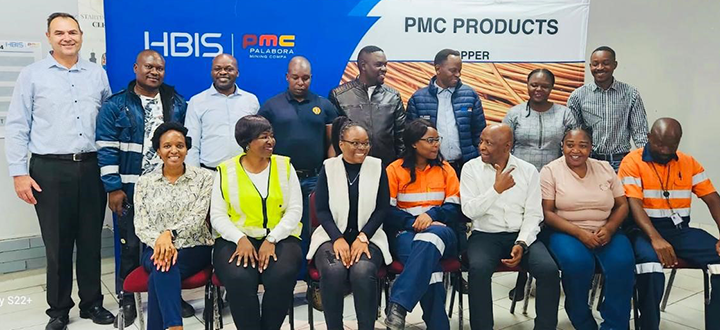 Great strides towards concretising Unisa-PMC partnership
Great strides towards concretising Unisa-PMC partnership
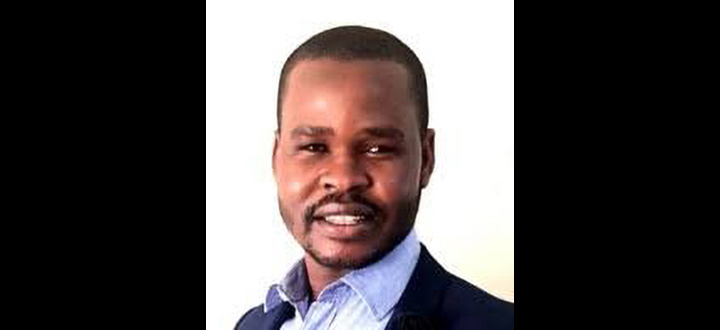 Mental health among men in the workplace needs more attention
Mental health among men in the workplace needs more attention
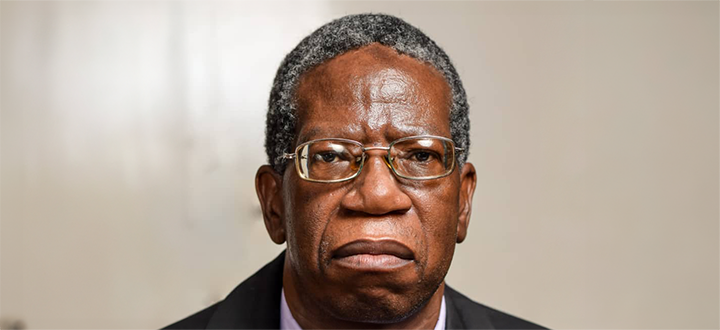 "I owe everything to Unisa and my late supervisor's priceless mentoring"
"I owe everything to Unisa and my late supervisor's priceless mentoring"
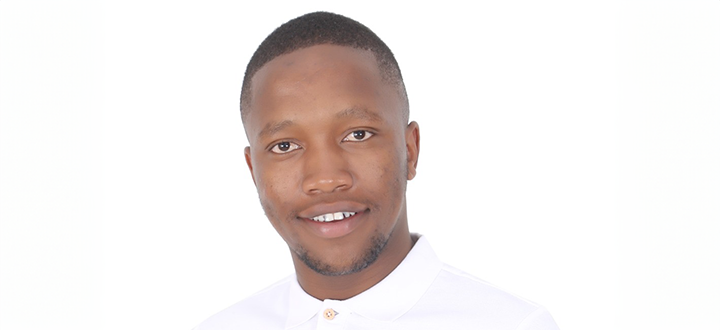 Majikijela - a queer scholar raising homosexuality awareness through his work
Majikijela - a queer scholar raising homosexuality awareness through his work